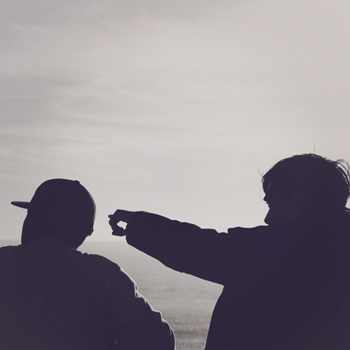 What if the one thing you fear most was the source of your deepest healing? This is the paradox of pornography addiction. In shame, porn addicts seek safety in the shadows of isolation.
What if the one thing you fear most was the source of your deepest healing? This is the paradox of pornography addiction. In shame, porn addicts seek safety in the shadows of isolation.
The sad irony is that in doing so, they separate themselves from a profound source of healing: authentic and accepting relationships.
After years of pursuing personal recovery and helping others heal as well, I am convinced that learning to connect with others in a group setting is foundational for long-term recovery. Without the group experience, recovery attempts are destined to fail.
For most, participation in a group sounds terrifying. Porn addicts tend to have a strong aversion to the concept, even when told that groups are vital. Let me explain why porn addicts run from the idea of recovery groups.
Most of us who struggle with pornography addiction learned early in life that other people could not be trusted to meet our needs. Whether this lesson came through neglect, abuse, or trauma, this belief made us vulnerable to porn addiction. When denied the connection we were created to enjoy, we started looking for alternate “connections”. In times of stress or distress, all humans reach out for soothing.
When our track record with people was poor, we turned to something non-relational to escape our suffering. For us, pornography quickly became the source of all soothing. At first, it seemed to meet a need but eventually we were overwhelmed by an out-of-control addiction. As the White Book of Sexaholics Anonymous explains, “what was used as the cure becomes the sickness; what was used as the medicine becomes the poison; the Answer becomes the Problem” (SA, 2009).
[shortcode-variables slug=”mypilgrimage-inline”]With this common backstory, our greatest need in recovery is the connection that seems to eternally evade us.
Here are three powerful reasons why groups provide the connection necessary for a lifetime of healing although the idea of opening up may be what you fear most :
We learn to trust.
In their book “God Attachment” Clinton & Straub (2010) share the truth that “we are wounded in relationships and we are healed in relationships”. Recovery will require letting go of pornography and replacing it with something real.
Groups provide a safe context in which we can learn to trust again. It is in groups that we get to practice connecting with others, possibly for the first time in our life. As we trust the group more fully, we open up more fully. The miracle of recovery occurs when love begins to fill us in a way that lust never would. This transformative experience cannot occur in isolation, so groups are essential.
Our shame and secrecy diminish.
Nothing fuels addiction like secrecy and shame. Active in our addiction, we believe we are innately broken and unworthy of love. Unless we learn to give voice to our inadequacies and hidden transgressions amongst those who support us, our addiction will thrive. Groups provide a safe and confidential setting where we can “air our dirty laundry”. As frightening as it may be initially, when we allow safe people to see inside of us, our shame is stunted and we develop a sense of belonging. While we once lived shackled by secrets, we experience how living in the truth sets us free.
[ctt title=”Recovery will require letting go of pornography and replacing it with something real.” tweet=”‘Recovery will require letting go of pornography and replacing it with something real’ – http://ctt.ec/_aYN0+ (@ForestGB @X3church)” coverup=”_aYN0″]
We find strength in numbers.
Ecclesiastes 4:12 reminds us that “if one can overpower him who is alone, two can resist him” and “a cord of three strands is not quickly torn apart”. When we join a group, we suddenly have a team working for the good of each player.
Groups provide both a cheering section and a lifeline. In times of temptation, there is power in reaching out to fellow group members. I liken this experience to letting someone talk us off of a ledge. In my personal battle against pornography addiction, having a handful of caring friends that I can call or text in moments of weakness or pain has strengthened my recovery in unimaginable ways.
Replacing lust with love.
I have been both a group member and a group leader. These days I lead six recovery groups per week in our LifeSTAR program and I love it. Having helped many porn addicts find freedom, I can honestly say that without a group, real recovery is impossible. Sure, someone might achieve “sobriety” on their own. But in order to recover from an often debilitating and lifelong addiction, a person needs to do more than just let go of lust.
As I shared in a workbook I wrote for my clients, “recovery is a process of letting go of lust and letting love replace it. It means letting go of your attachment to unhealthy coping mechanisms and connecting with what is real. Learning how to connect will likely be the hardest yet most rewarding adventure of your life. Connection truly satisfies what lust never could” (Benedict, 2014).
It is my hope that those seeking long-term freedom from pornography addiction will lean into the fear of being seen and take the bold leap of joining a recovery group like an X3group.
When we come out of hiding, healing can begin.[shortcode-variables slug=”my-pilgrimage-bottom”]

